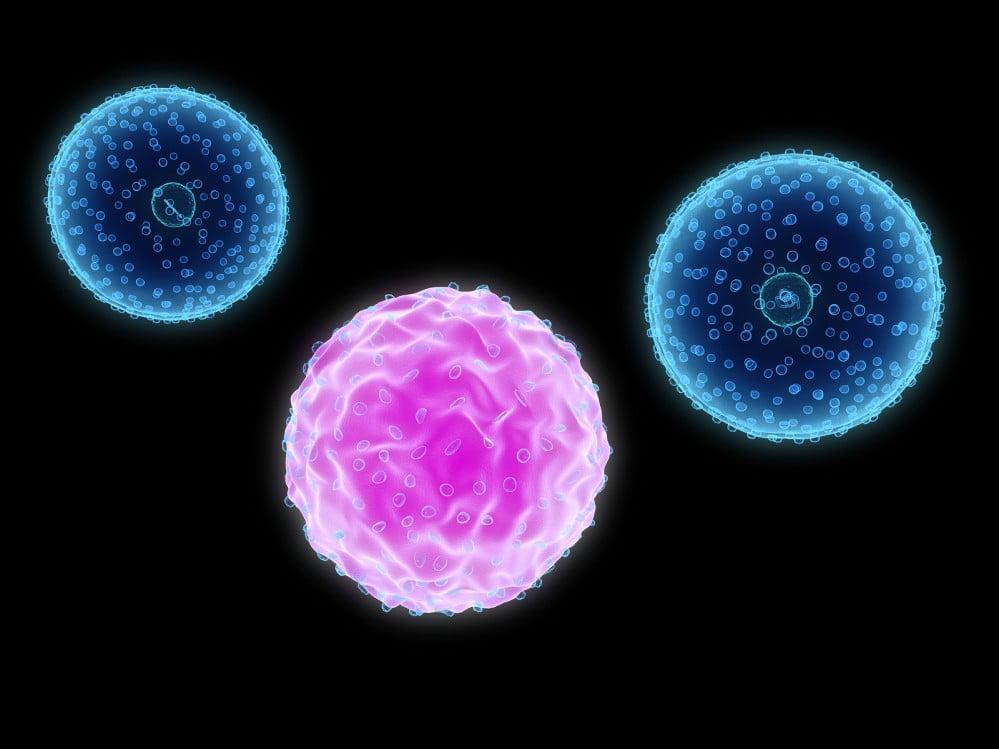More than 3,000 American children were diagnosed with leukemia last year, according to the American Cancer Society. But these numbers could potentially drop if more mothers would breastfeed their babies for longer periods, a recent study by Israeli researchers says. The study presents a hopeful correlation between breastfeeding and a lowered risk of contracting childhood leukemia, which accounts for nearly 30 percent of all childhood cancers.
SEE ALSO: Why Leukemia Recurs After Successful Chemotherapy
Patients with leukemia, a type of blood cancer, suffer from a weakened immune system, poor blood clotting, and frequent fatigue, among other symptoms. But this disease could potentially be prevented, according to the University of Haifa study, which suggests that babies who are breastfed for six months or longer have a 19 percent lower risk of contracting leukemia, compared to those who are given formula or are breastfed for a shorter amount of time.
SEE ALSO: Breastfed Babies Are Less Likely To Develop ADHD
While it is unclear what exact properties of breast milk lower the risk, the researchers state that breast milk contains “many immunologically active components and anti-inflammatory defense mechanisms that influence the development of an infant’s immune system.”
The study, conducted by Dr. Efrat L. Amitay and Dr. Lital Keinan-Boker, is based on a meta-analysis of 18 previous studies and was recently published in the esteemed scientific journal JAMA Pediatrics, part of the Journal of American Medical Association.
Sign up for our free weekly newsletter
Subscribe“There are so many proven benefits seen in babies who are breastfed”
Critics have challenged the findings on the grounds that they are not sufficiently rigorous to support or refute the claim that babies who are breastfed are at a reduced risk of childhood leukemia. Additionally, the studies reviewed by the Israeli research team only considered the association between breastfeeding and one specific type of leukemia known as acute lymphoblastic leukemia (ALL). Still, the findings are considered significant, considering that three out of four leukemia cases among children are ALL, according to the American Cancer Society.
All criticisms considered, Amitay and Keinan-Boker still vouch for breastfeeding and its health benefits, in light of the fact that over the past 50 years there has been a sharp decline in breastfeeding, especially in urban areas of developed countries, where more women are entering the workplace. “I think women want to breastfeed but they have less time to do so, and less experience,” Keinan-Boker tells NoCamels. “They don’t live in tight-knit communities anymore where older women traditionally would help them through the process.”
 Amitay and Keinan-Boker hope that their findings provide another compelling reason for women to breastfeed, and breastfeed exclusively. “Of course, leukemia prevention is not the main or only reason to breastfeed,” Keinan-Boker says. “There are so many proven benefits seen in babies who are breastfed, such as higher IQ, lower risk for ear infections and intestinal diseases, which are much more common in babies.”
Amitay and Keinan-Boker hope that their findings provide another compelling reason for women to breastfeed, and breastfeed exclusively. “Of course, leukemia prevention is not the main or only reason to breastfeed,” Keinan-Boker says. “There are so many proven benefits seen in babies who are breastfed, such as higher IQ, lower risk for ear infections and intestinal diseases, which are much more common in babies.”
However, others are heeding against the guilt that is assigned to women who cannot, or choose not to breastfeed. According to KidsHealth.org, “The decision to breastfeed or formula feed your baby is a personal one. Weighing the pros and cons of each method can help you decide what is best for you and your baby.”
Photos: Aurimas Mikalauskas
Related posts

Israeli Medical Technologies That Could Change The World

Harnessing Our Own Bodies For Side Effect-Free Weight Loss

Missing Protein Could Unlock Treatment For Aggressive Lung Cancer





Facebook comments